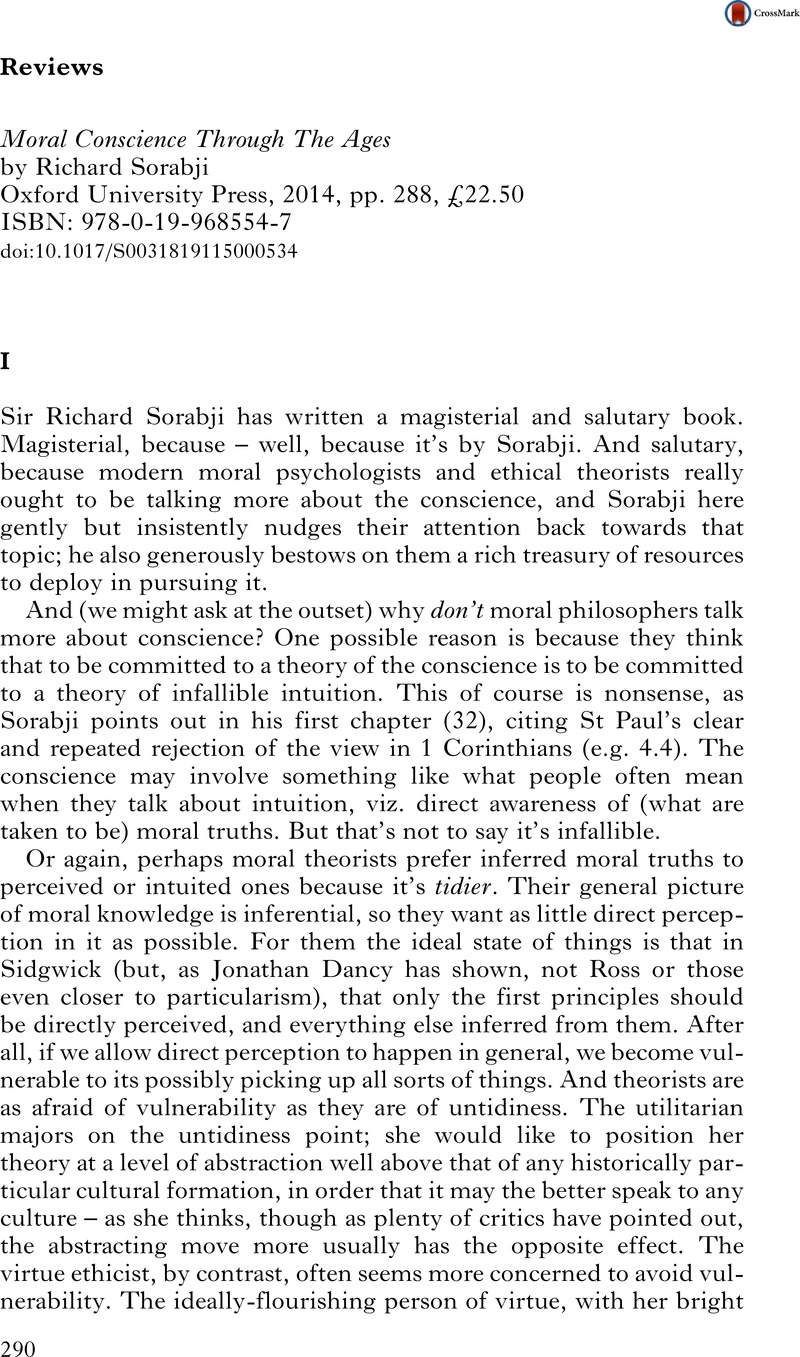No CrossRef data available.
Article contents
Moral Conscience Through The Ages by Richard Sorabji Oxford University Press, 2014, pp. 288, £22.50 ISBN: 978-0-19-968554-7
Published online by Cambridge University Press: 12 January 2016
Abstract

- Type
- Reviews
- Information
- Copyright
- Copyright © The Royal Institute of Philosophy 2016
References
1 One classic statement of the instrumental value of conscience is a famous passage in Mill's Utilitarianism, Ch.3: ‘The internal sanction of duty, whatever our standard of duty may be, is one and the same – a feeling in our own mind; a pain, more or less intense, attendant on violation of duty, which in properly cultivated moral natures rises, in the more serious cases, into shrinking from it as an impossibility. This feeling, when disinterested, and connecting itself with the pure idea of duty, and not with some particular form of it, or with any of the merely accessory circumstances, is the essence of Conscience.’
2 Something actually wrong, or something that you (perhaps wrongly) believe to be wrong: the distinction is obvious, but this paper is not centrally about it. As I say at the beginning, the common obsession with the infallibility of conscience is a red herring.
3 Or part of my answer; I don't claim to be able to tell the whole story, but I do think this is an important part of it.
4 While researching this topic, the first place I found these passages was in a recent essay by Allen Wood, ‘Kant on conscience’, unpublished as far as I know, but on Wood's Stanford webpage at web.stanford.edu/~allenw/webpapers/KantOnConscience.pdf. Sorabji cites all three passages in his excellent discussion of Kant on conscience at 178–183.
5 There is another and at least equally important story to tell about how conscience arises in our other main predecessor culture, the Hebrew world. This story is too long to tell here, but as early as the wisdom literature it is already, to an important degree, a story about the courtroom: the Psalmist's frequent cry is ‘Plead my cause, O Lord’, and what Job does is pretty well exactly summed up by a phrase of C.S.Lewis's: he puts God in the dock. Similarly in the Hebrew world from Leviticus on, forgiveness and atonement are consistently seen within a juridical and forensic framework; so too, when we get to the New Testament, is the Christian atonement.
6 Two superb expositions of the kind of view of our own messy history and resulting contingency and fallibility that I have in mind here are Valerie Tiberius, The Reflective Life: living wisely within our limits, and Peter Goldie, The Mess Inside.
7 Thanks for their comments to John Cottingham, Andrew Huddlestone, Adrian Moore, Edward Skidelsky, Robert Skidelsky, John Skorupski, and other contributors to a symposium on the history of moral concepts in Westminster, October 2015.



